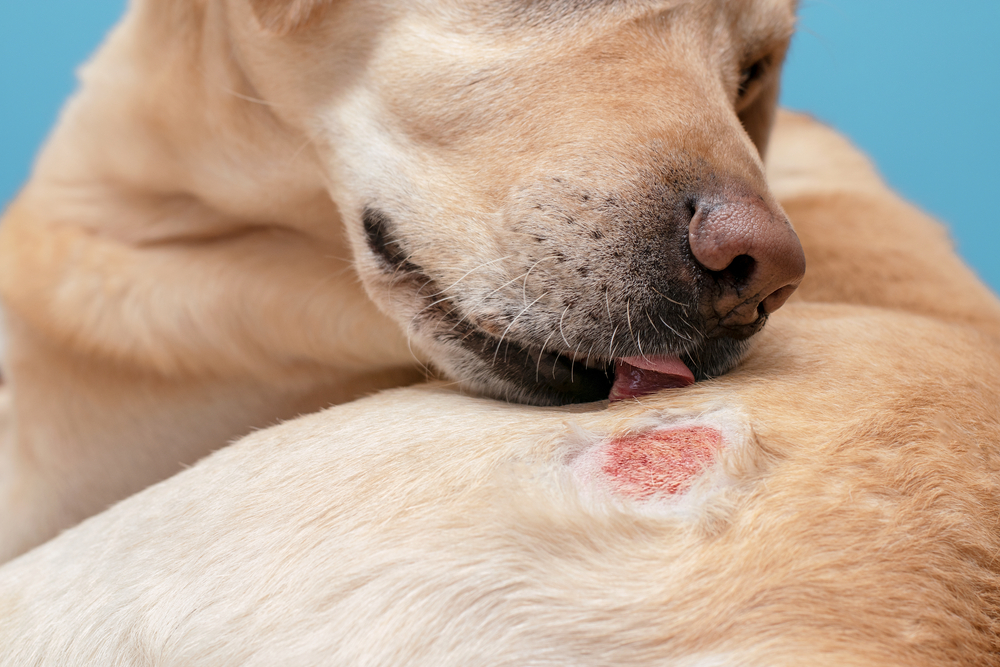
Allergic reactions in pets occur when the immune system overreacts to a specific substance, triggering an inflammatory response. This can happen when a pet is exposed to an allergen, which can be anything from certain foods to environmental factors like pollen or dust mites. Understanding the underlying causes and mechanisms behind these reactions is the first step in effectively managing them.
Common Causes of Allergic Reactions in Pets
Pets can develop allergies to a wide range of substances, including:
Food Ingredients: Proteins from common pet food ingredients like beef, chicken, dairy, or wheat can trigger an allergic response.
Environmental Allergens: Pollen, dust mites, mold, and even certain types of grass or trees can cause allergic reactions in pets.
Flea Saliva: The saliva from flea bites can lead to an allergic reaction, often resulting in intense itching and skin irritation.
Medications: Certain medications, both prescription and over-the-counter, can sometimes cause allergic reactions in pets.
Household Chemicals: Cleaning products, fragrances, and other household chemicals can also be potential allergens for our furry friends.
Different Types of Allergic Reactions in Pets
Allergic reactions in pets can manifest in various ways, and it's important to be able to recognize the different types:
Skin Allergies: These are the most common type of allergic reaction in pets, often resulting in symptoms like itching, redness, hives, or even hair loss.
Gastrointestinal Allergies: Pets can develop food allergies that lead to digestive issues such as vomiting, diarrhea, or excessive gas.
Respiratory Allergies: In some cases, pets may experience breathing difficulties, sneezing, or nasal congestion due to allergic reactions.
Anaphylaxis: Severe, life-threatening allergic reactions, known as anaphylaxis, can occur in rare instances and require immediate veterinary attention.
Recognizing the Signs of Allergic Reactions in Pets
Identifying the signs of an allergic reaction in your pet is crucial for prompt diagnosis and treatment. Some common symptoms to watch out for include:
Excessive itching, licking, or scratching
Skin irritation, such as redness, hives, or hot spots
Respiratory issues like sneezing, wheezing, or nasal discharge
Digestive problems like vomiting, diarrhea, or loss of appetite
Swelling, particularly in the face, ears, or paws
Lethargy or decreased activity levels
If you notice any of these signs in your pet, it's important to seek veterinary attention as soon as possible.
The Importance of Early Detection and Treatment
Early detection and treatment of allergic reactions in pets are crucial for maintaining their health and well-being. When left untreated, allergies can cause a variety of serious complications. Pets may develop chronic skin infections, often referred to as "hot spots," which can be painful and challenging to heal. Digestive issues caused by allergies can also lead to malnutrition and weight loss, affecting the pet’s overall vitality. In some cases, severe allergic reactions can result in respiratory distress, and in extreme situations, respiratory failure.
Veterinarians can perform detailed evaluations and tests to identify the specific allergens affecting your pet. They work closely with you to develop a comprehensive management plan that may include dietary changes, medications, and other treatments to alleviate symptoms and prevent further complications. Through prompt diagnosis and tailored care, your veterinarian can help ensure your pet stays healthy and comfortable, minimizing the long-term impact of allergies.
Get in Touch with Springwood Veterinary Hospital Today
Navigating the world of allergic reactions in pets can be a challenging but rewarding journey. By understanding the causes, recognizing the signs, and implementing effective management strategies, you can help ensure your furry friend's health and well-being.
If you suspect your pet may be experiencing an allergic reaction, contact Springwood Veterinary Hospital. We can provide a thorough evaluation, identify the underlying causes, and develop a personalized treatment plan to help your pet find relief and prevent future reactions. Visit our office in Spring, Texas, or call (281) 370-3262 today.









